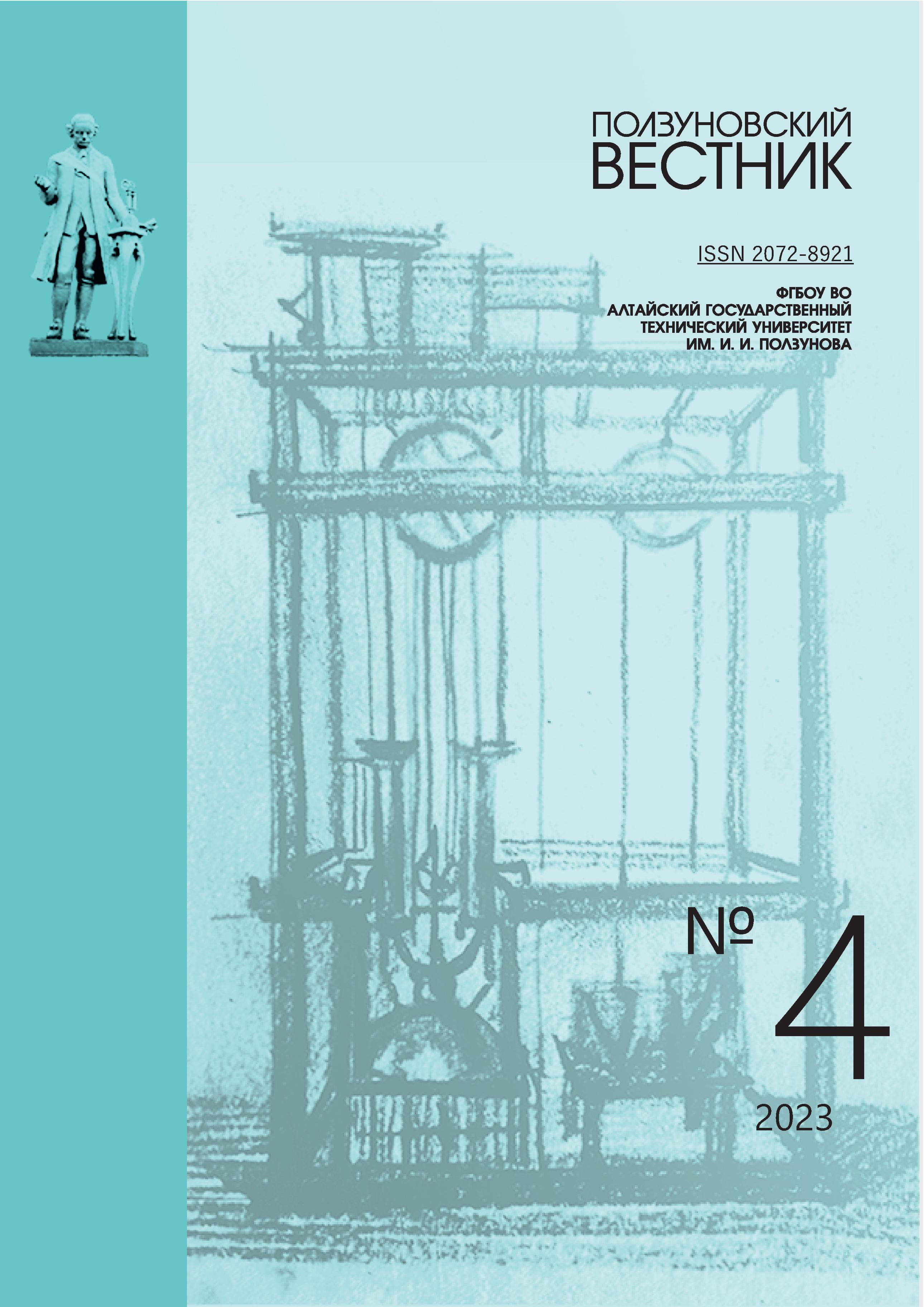DESIGN OF COMPLEX FOOD SUPPLEMENTS IN THE FORM OF MICROCAPSULATED SYNBIOTICS
FOURPP
DOI:
https://doi.org/10.25712/ASTU.2072-8921.2023.04.007Keywords:
synbiotic, complex nutritional supplement, prebiotic, probiotic, dysbacteriosis, confectioneryAbstract
Natural bioactive compounds and living microorganisms are promising sources for the design of food products with beneficial properties for human health. The main problem of the widespread use of these components is their degradation during heat treatment and storage. The solution to the problem can be found in the process of microencapsulation of biologically active substances in order to preserve and stabilize functional compounds, as well as the ability of the outer shell to release them into the necessary sections of the gastrointestinal tract.
The relevance of research is due to the design of a synbiotic consisting of the callus mass of Arctic phyto-raw materials containing a significant amount of polyphenolic compounds, obtained by cultivating leaf producers in sterile laboratory conditions, as well as probiotic microorganisms produced by industry. It has been established that the content of glycosides in the callus tissue is lower than in the plant, the content of benzoic acid is also reduced. However, there is an increase in the content of flavonoids from 12.6% to 16.5% in the callus mass. According to the results of the research, it was found that the largest volumes of biomass growth were detected after 35 days. The complex compound contained a significant amount of fiber up to 18.2 mg/100, polyphenolic compounds up to 515.5 mg/10. The resulting product was a light brown powder with a moisture content of 5.8-7.0%, sent for the microencapsulation process as a core.
References
Стратегия развития Арктической зоны Российской Федерации и обеспечения национальной безопасности на период до 2035 года. Утверждена Указом Президента Российской Фе-дерации от 26 октября 2020 года. Москва : Про-спект ; Санкт-Петербург : Кодекс, 2020. 24 с.
Попов В.Г. Развитие технологии производства специализированных продуктов питания для населения Арктики / В.Г. Попов, С.А. Белина, О.С. Федорова // Ползуновский вестник. 2017. № 3. С. 14–19.
Корочинский А.В. Технологическая разра-ботка иммобилизованных лекарственных форм с биоспорином и их исследования / автореф. дис. … канд. фарм. наук. Пятигорск, 2014. 4 с.
Николаев Ю.А., Пальцев А.И., Кузнецо-ва Т.В. Особенности клинического течения забо-леваний органов пищеварения у пришлого насе-ления на севере. Бюллетень СОРАМН, № 3 (121), 2006 г. С. 121–125.
Distrutti E., Monaldi L., Ricci P., Fiorucci S. Gut microbiota role in irri-table bowel syndrome: New therapeutic strategies // World J Gastroen-terol. 2016; 22 (7): 2219-2241.
Arslan S., Derak A.N., Erbas M., Tanriver-di E., Gulkan U. (2015). Determination of microbio-logical and chemical properties of a probiotic dose and its consumer acceptability. J Am Coll Nutr 34(1): 56–64. https://doi.org/10.1080/07315724.2014.880661.
Asemi Z., Zare Z., Shakeri H., Sabihi S.S., Esmaillzadeh A. Effect of multispecies probiotic supplements on metabolic profiles, hs-CRP, and oxidative stress in patients with type 2 diabetes // Ann Nutr Metab. 2013; 63 (1–2): 1–9.
Gong J., Bai T., Zhang L., Qian W. [et al.]. In-hibition effect of Bifidobacte-rium longum, Lactoba-cillus acidophilus, Streptococcus thermophilus and Enterococcus faecalis and their related products on human colonic smooth muscle in vitro // PLoS One. 2017; 12 (12): e0189257.
Zamani B., Golkar H.R., Farshbaf S., Emadi-Baygi M. [et al.]. Clinical and metabolic response to probiotic supplementation in patients with rheu-matoid arthritis: a randomized, double-blind, place-bo-controlled trial // Int J Rheum Dis. 2016; 19 (9): 869‒79.
Gianchecchi E., Fierabracci A. Re-cent advances on microbiota in-volvement in the pathogenesis of autoimmunity // Int J Mol Sci. 2019; 20 (2): 283.
Qin J., Li Y., Cai Z., Li S. A meta-genome-wide association study of gut microbiota in type 2 diabetes // Nature. 2012; 490 (7418): 55‒60.
Bennet S.M.P., Öhman L., Simrén M. Gut microbiota as potential or-chestrators of irritable bowel syndrome // Gut Liver. 2015; 9 (3): 318‒331.
Емельянов А.А., Кузнецова Е.А. Составляющие мякоти тыквы // Пиво и напитки. 2009. № 4. С. 40–43.
Vyas P., Curran N.H., Igamberdiev A.U., Debnath S.C. Antioxidant properties of lin-gonberry (Vaccinium vitis-idaea L.) leaves within a set of wild clones and cultivars // Canadian Journal of Plant Science. 2015. Vol. 95. № 4. Pp. 663669. DOI: 10.1139/CJPS-2014-400.
Гапон М.Н. дисс. … к.б.н. по специальности ВАК РФ 03.00.04, Показатели антиоксидантной защиты организма при экспериментальном дисбактериозе кишечника, обусловлен-ном применением антибиотика широкого спектра действия, 2007, Ростов-на-Дону.
Охрименко Л.П., Калинкина Г.И., Лукша Е.А., Коломиец Н.Э. Исследование фе-нольных соединений листьев голубики, брусники, толокнянки, черники и зимолюбки, произрастаю-щих в Республике Саха (Якутия) // Химия расти-тельного сырья. 2009. № 3. С. 109–115.
Лубсандоржиева Н.Б. Антиоксидантная активность экстрактов из Bergenia Crassifolia (L.) Fritsch и Vaccinium vitis-idaea L. in vitro // Химия растительного сырья. 2006. № 4. С. 45–48.
Артёмкина Н.А. Фенольные со-единения Vaccinium vitis-idaea и их ответ на воз-действие различных факторов окружающей сре-ды // Химия растительного сырья. 2019. № 2. С. 59–66.
Олейников Д.Н., Samuelsen A.B., Танхаева Л.М. Подорожник большой (Plantago Major L.). Химический состав и применение // Хи-мия растительного сырья. 2007. № 2. С. 37–50.
Постраш И.Ю. Трава зверобоя продырявленного: химический состав, свойства, применение. Вестник АПК Верхневолжья. № 1 (53). 2021. С. 57–63.
Патент 2720916 (RU) Способ стерилизации зелёных растительных эксплантов перед вводом в культуру in vitro / М.С. Трофимова, А.Н. Ребров ФГБНУ «Федеральный Ростовский аграрный научный центр».
Попов В.Г., Аксентьева В.В. Получение полифе-нольных соединений из фитосырья методом микрокло-нального размножения клеток in vitro // Индустрия питания / Food Industry. 2022. Т. 7, № 4. С. 102–108.
Попов В.Г. Теоретико-методологические подходы к разработке и практическому применению функциональ-ных напитков для школьного питания : дисс. … докт. тех. наук / В.Г. Попов. Кемерово, 2014. 421 с.
Downloads
Published
How to Cite
Issue
Section
License
Copyright (c) 2023 Vladimir G. Popov, Victoria V. Aksentieva

This work is licensed under a Creative Commons Attribution 4.0 International License.















 .
. This work is licensed under a
This work is licensed under a 
